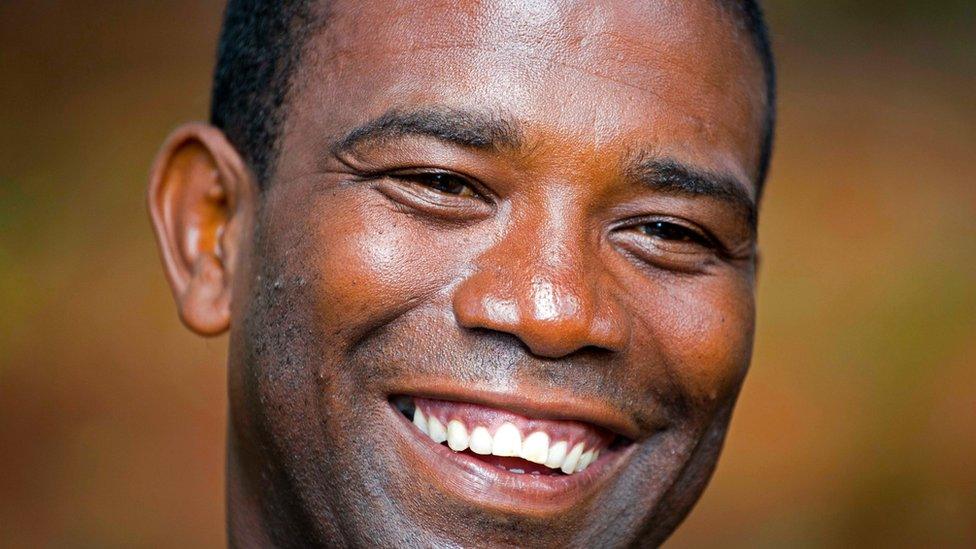Former rebel Guy Philippe calls for Haiti PM to resign
- Published
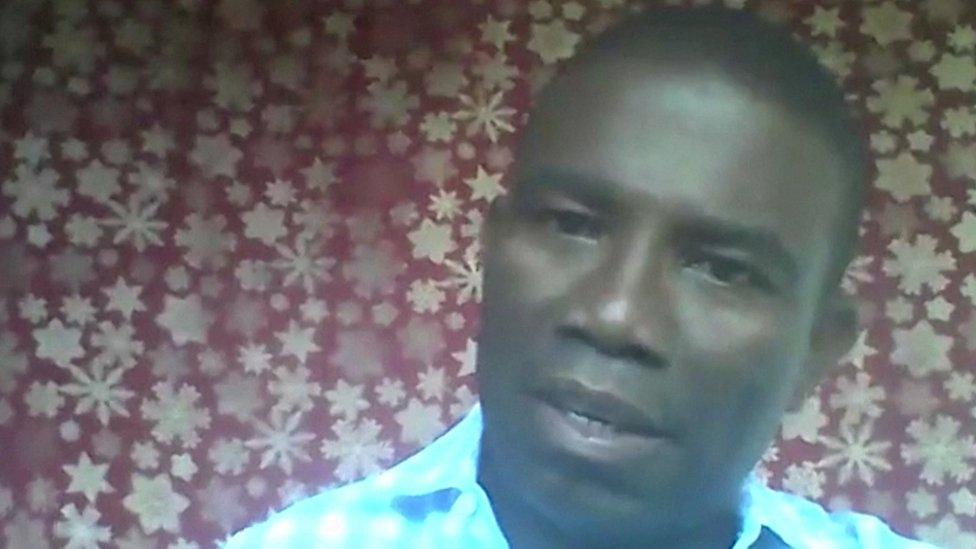
Guy Philippe, a rebel leader turned politician, told Reuters news agency he wants to be president
Guy Philippe, a leader of the 2004 Haitian coup, has joined calls for Prime Minister Ariel Henry to resign.
Philippe, who returned to Haiti last year after serving a prison sentence in the US, told Reuters news agency that he wants to be president.
Haiti's capital has been paralysed by gang violence recently, and it escalated dramatically when Mr Henry left for a regional summit last week.
A state of emergency has been extended by a month in Port-au-Prince.
Philippe, who was deported back to Haiti in November after serving six years of a prison sentence for conspiracy to launder drug money, said Mr Henry should resign and "let Haitians decide their fate".
Asked if he wanted to become president, he said: "Yes! I'm going into politics."
"I was a senator, I've been elected by my people, I will go again in elections," added Philippe, who was one of the main leaders in 2004's overthrow of President Jean-Bertrand Aristide.
'Beyond untenable'
Also on Friday, there was heavy gunfire around Haiti's national palace in Port-au-Prince, news agency EFE reported.
The gang violence has seen a jail stormed, police stations torched and an attempted takeover of Haiti's airports.
As a result, the airports and harbours are closed, and thousands of people have been forced to flee their homes.
The UN said the situation was "beyond untenable". It added on Friday that nearly 3,000 pregnant women could be cut off from essential health services in the capital.
"Today, too many women and young women in Haiti are victims of indiscriminate violence committed by armed gangs," the UN said in a statement, external.
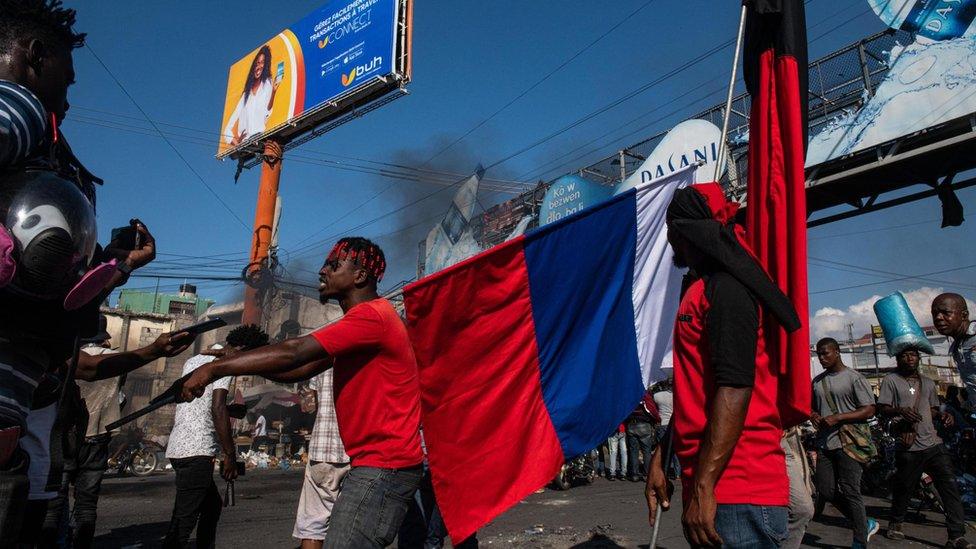
Dozens of protesters took to the streets in Port-au-Prince to demand the prime minister's resignation on Thursday
Philippe said he did not have a deep connection to the gangs and was not behind the ongoing violence.
But he added that he would seek to implement an amnesty for gang leaders if he were to take power.
Philippe said he would seek to put his country's relationship with powers like the US on a more equal footing, and criticised international backing that he said had kept Mr Henry in power.
"If Haiti is where it is now, it's partly because of them," he added.
But Philippe does not think there will be a civil war in Haiti, as gang leader Jimmy "Barbecue" Chérizier warned earlier this week.
"No... I know the Americans who are deciding everything here will be wise enough to understand that Haitians want some kind of change," he said.
Haiti has not had a president since Jovenel Moïse was assassinated by Colombian mercenaries in July 2021.
Mr Henry, who was sworn into office two weeks after Mr Moïse's assassination, has been ruling the country since, repeatedly promising to pave the way for long-delayed elections to be held.
But in 2023, when elections were due to be held, he argued that worsening levels of gang violence made it impossible to ensure free and fair elections.
The repeated failure to hold not just presidential but also legislative elections means Haiti has not had a single elected government official since the term of the last elected senators expired in January 2023.
Related topics
- Published22 June 2017
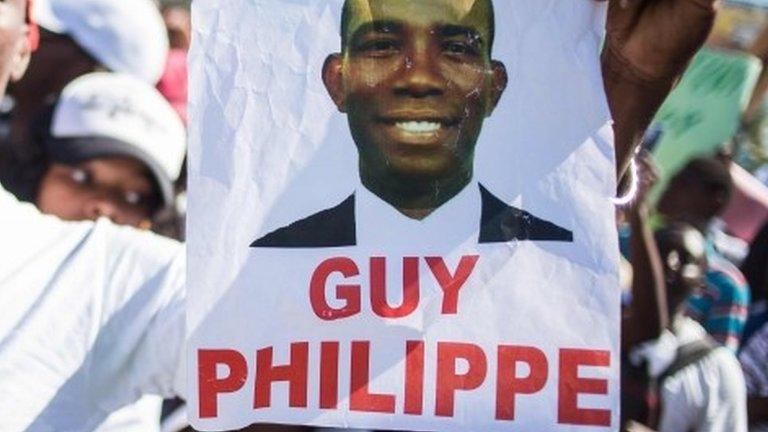
- Published8 February 2024
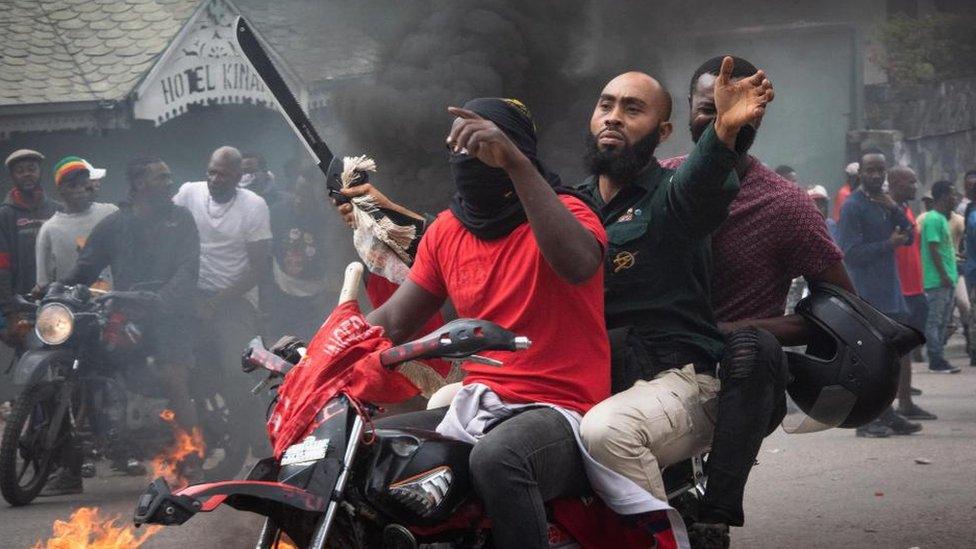
- Published7 March 2024
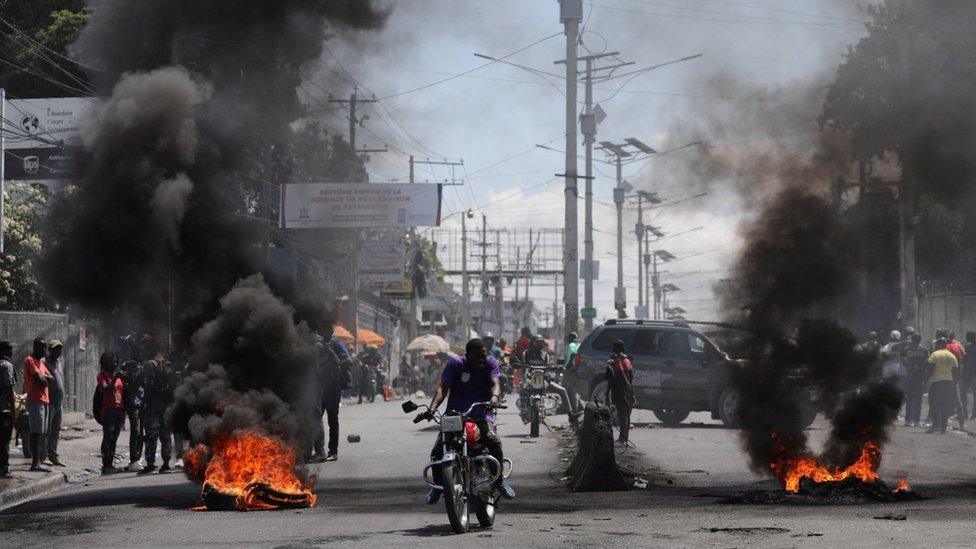
- Published6 March 2024
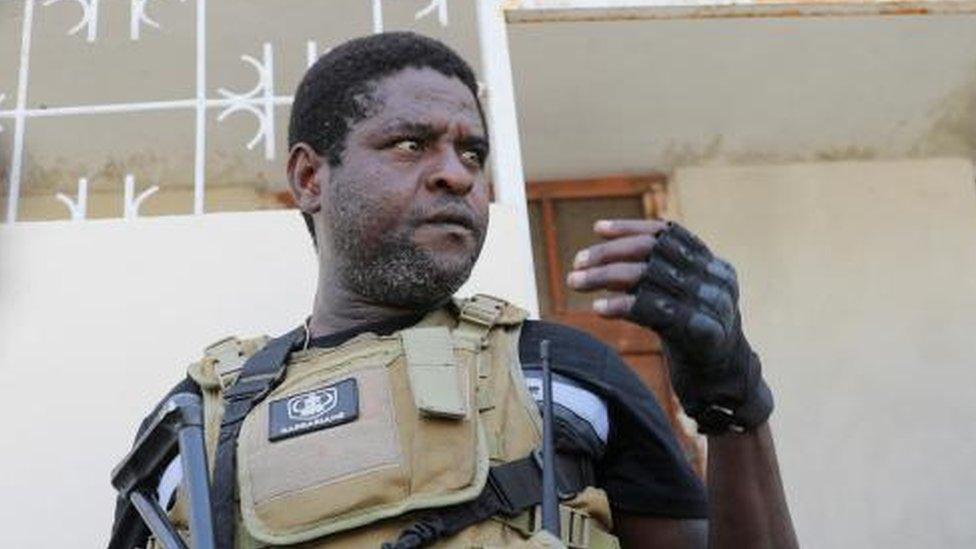
- Published4 March 2024
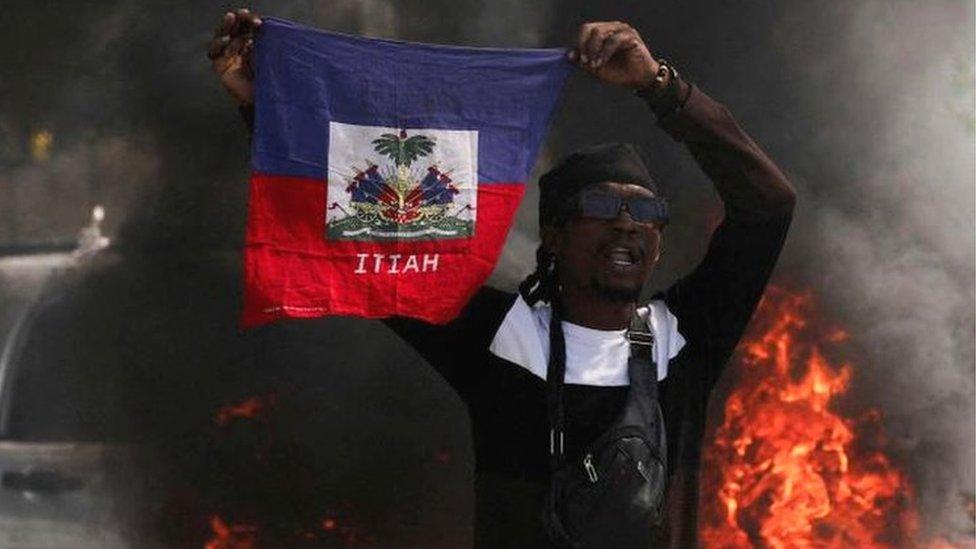
- Published5 January 2017
